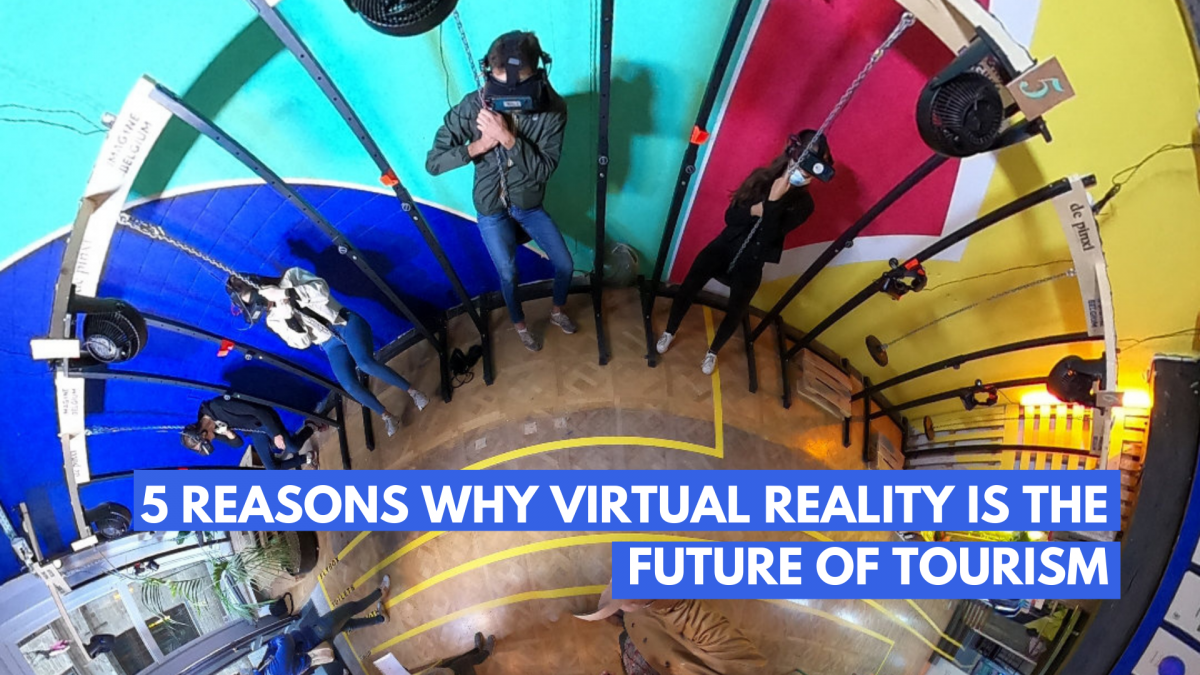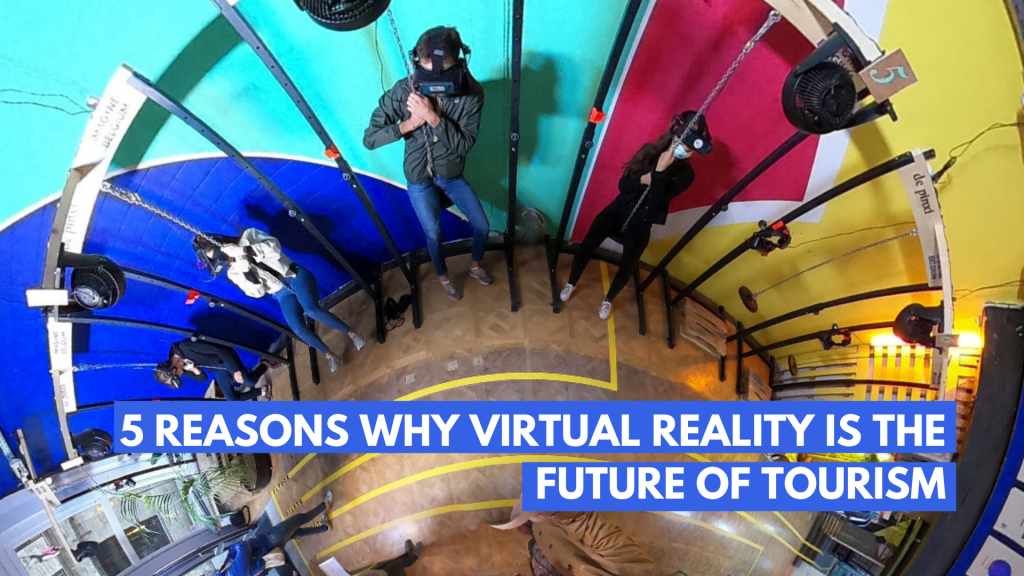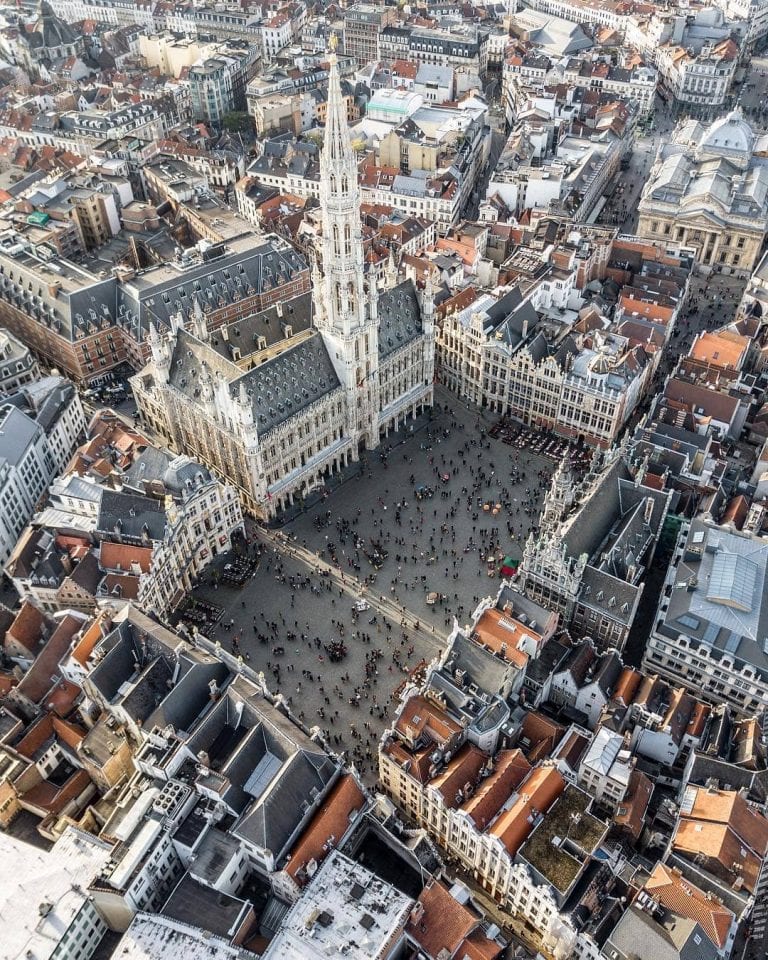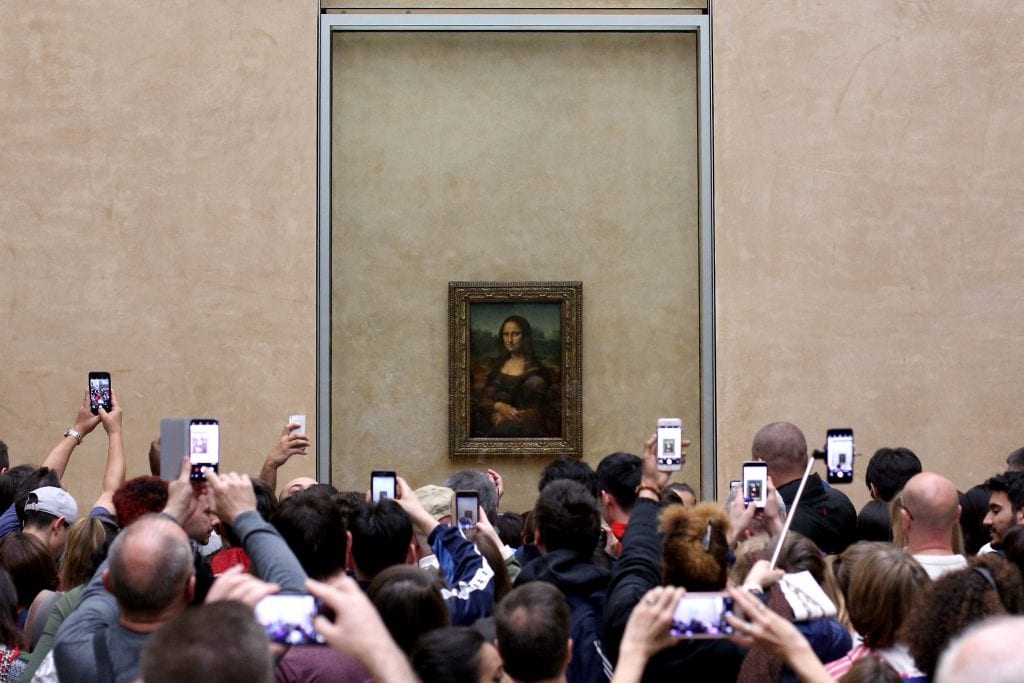#startuplife
5 reasons why Virtual Reality is the future of tourism

5 reasons why VR is the future of tourism - Imagine Belgium

Have you ever imagined that one day you would explore new places thanks to Virtual Reality?
It may sound like a sci-fi movie but it is becoming true! At Imagine Belgium we believe that the future of tourism is now and that VR is a great way to boost tourism.
Here are 5 reasons why virtual reality is the future of tourism!
1. VR gives new possibilities to the tourism sector
Indeed, virtual reality helps us to boost the tourism sector especially in times of covid-19 when people had to restrain their holidays plans.
It does not mean that VR will completely replace our travel experiences, it only means that it gives new opportunities and enhances the tourism sector. It can even renew the interest of visitors for historical places abandoned by the public.
In fact, new technologies such as VR are a key tool to offer visitors sensational experiences while promoting tourism but also culture and digital innovation all at once! What else would you want?

2. VR allows you to see the country from the sky
Unless you are a bird, you probably don’t know what it feels to fly and get closer to some of the greatest places in the world.
Virtual reality gives you the possibility to see those places like never before. What makes VR so incredible is that you can virtually FLY!
It is now possible to feel like you are flying over the most famous cities in the world. VR is therefore a unique way to discover your country from the sky, enjoying fantastic panoramas and getting sensations you could not experience otherwise.
3. You get teleported from one location to another… even in exclusive areas!
Not only you can fly with VR, you can also go from one place to another in a second! In a few minutes, you can get a taste of a place, a city or even an entire country.
You can even go back in time and spend some time in the past (sure Marty McFly from Back to the Future wouldn’t believe it).
VR is indeed a unique way to see the world, but it is also an exclusive way to access places you could not reach in real life. For example, Flyview360 in Paris opens the doors of the Cathedral Notre-Dame which is currently closed to the public since the dramatic fire devastated the building last year.
As you can see, the more time goes by, the more we can see the advantages of developing virtual reality alternatives in the tourism sector.
4. VR is a family-friendly activity
Another advantage with virtual reality is that the whole family can enjoy a fantastic experience! We know how difficult it can be to find a good activity that makes the young and old happy.
The good thing with virtual reality is that it is super entertaining. It is actually a success in the gaming sector as we can see with the Zero Latency VR games.
When you apply virtual reality to the tourism sector, it becomes an amazing way to entertain your little tribe while discovering your holiday location or even your own place!

5. VR prevents mass-tourism
In fact, virtual reality can also be considered as a way to prevent mass-tourism and help avoiding overcrowded areas. We all know how detrimental mass-tourism can be in many aspects.
VR offers the possibility to visit a tourist site while preserving the natural and historical heritage of the area. We told you, virtual reality is definitely part of the future of tourism!
Are you ready to fly? Imagine Belgium launched Flybox, the new VR experience in Brussels to (re)discover Belgium!
If you are looking for a unique activity to do with your family or friends, you can already book your tickets online (send us an email at [email protected]).
****
And if you want to know more about how virtual reality can reinvent your holidays, read these articles:
- How Virtual Reality Could Help The Travel & Tourism Industry In The Aftermath Of The Coronavirus Outbreak – Forbes (March 2020)
- Coronavirus: Is virtual reality tourism about to take off? – BBC (October 2020)
- Is virtual travel here to stay, even after the pandemic subsides? – GEO (April 2020)
- Dans la rue ou chez soi, comment la réalité virtuelle va bousculer notre quotidien – Madame Figaro (November 2020) (available in French)
- La réalité virtuelle va-t-elle révolutionner nos vacances ? – GEO (August 2020) (available in French)




2 Comments
Are you looking for a sexy escort in tapovan. We Twinkle Escort Agency is the most famous and trusted escorts provider in the city. Our Agency has more than 200+ Independent call girls provide both in-call and out-call servics all 24 x 7. Finding a trusted and honest escort is so tough in today time. But all our past customers are so satisfied and feel safe with our services. For more details visit callgirls in tapovan
Thank you for some other informative blog. Where else could I get that type of information written in such an ideal means? Escorts Service in Goa. I have a mission that I’m just now working on, and I have been at the look out for such information